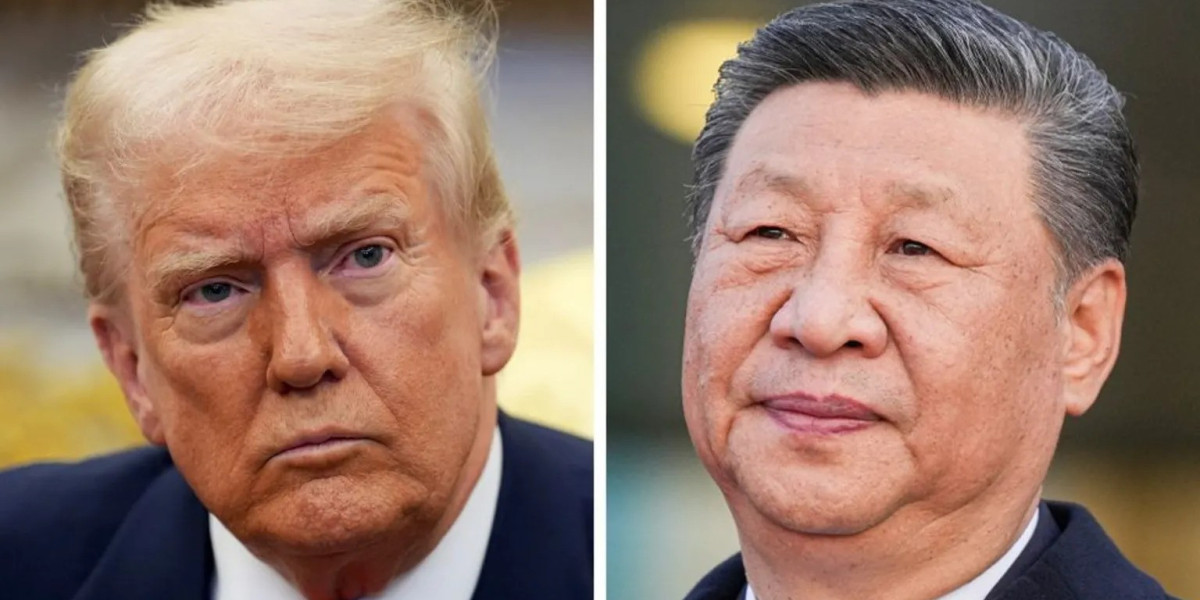Former U.S. President Donald Trump’s recent decision to resume nuclear testing has drawn sharp reactions from both Russia and China, reigniting global concerns over nuclear stability and arms control. The move, framed by Trump as a step toward “ensuring American strength,” has been widely condemned by international observers as a potential trigger for a new global arms race.
The Announcement
In a televised address, Trump confirmed that the United States had conducted a subcritical nuclear test at a Nevada facility — the first since the early 2000s.
Trump justified the test as a “necessary measure” to ensure the reliability of America’s nuclear arsenal and to “send a clear message” to adversaries.
“We will not allow our deterrence to weaken,” Trump said. “America’s security must always come first.”
The decision marks a significant shift from previous administrations, which maintained a moratorium on nuclear testing in line with the Comprehensive Nuclear-Test-Ban Treaty (CTBT) — a treaty the U.S. signed but never formally ratified.
Russia’s Response: Warning of Escalation
The Kremlin reacted swiftly, warning that Trump’s action could destabilize decades of arms control efforts. Russian Foreign Ministry spokesperson Maria Zakharova called the move “a reckless provocation that threatens global peace.”
She stated:
“If the United States believes it can unilaterally resume testing without consequences, it is deeply mistaken. Russia will take all necessary steps to maintain its strategic balance.”
Analysts in Moscow suggest that the decision could lead to new nuclear modernization efforts, with Russia potentially accelerating the deployment of advanced weapons systems such as hypersonic missiles and strategic warheads.
China’s Reaction: A Call for Restraint
Beijing’s response was more diplomatic but equally firm.
China’s Foreign Ministry urged Washington to “exercise restraint and avoid actions that heighten global instability.”
Foreign Minister Wang Yi warned that renewed nuclear testing “undermines mutual trust and weakens the global non-proliferation regime.”
“China stands for dialogue, not detonation,” he added, emphasizing that nations should prioritize negotiation over confrontation.
Chinese state media framed the U.S. test as a sign of “military adventurism” and suggested that it could prompt regional insecurity across East Asia, particularly as tensions rise over the South China Sea and Taiwan.
Global Reactions and Concerns
The news of the test has triggered anxiety among U.S. allies and international organizations.
The United Nations Secretary-General called the test “deeply concerning,” urging all nuclear powers to uphold their commitments under the Non-Proliferation Treaty (NPT).
The European Union expressed similar concern, stating that any resumption of testing “would roll back decades of progress toward nuclear disarmament.”
Meanwhile, Japan and South Korea, two key U.S. allies in Asia, voiced unease that such actions could embolden North Korea to justify its own nuclear activities.
Domestic Reaction: Divided Opinions
Within the United States, the announcement sparked mixed political and public reactions.
Supporters of Trump hailed the move as a “show of strength”, arguing that a credible deterrent is necessary amid rising global threats.
However, critics — including several lawmakers and defense analysts — warned that the test could erode America’s moral authority in pressing other nations, such as Iran and North Korea, to halt their nuclear ambitions.
Former Senator Elizabeth Warren described the test as “dangerous and short-sighted,” arguing that it risks undoing years of bipartisan arms control progress.
Arms Control Treaties at Risk
The resumption of nuclear testing puts additional strain on an already fragile network of international treaties.
The New START Treaty between the U.S. and Russia — the last remaining arms control pact limiting strategic nuclear weapons — is already nearing expiration unless renewed.
Experts warn that without such agreements, nuclear transparency and verification mechanisms could collapse, leading to an era of unchecked modernization of nuclear arsenals by major powers.
Analysts’ View: A New Nuclear Era?
Defense experts are divided on whether the test signals a broader policy shift or a one-time demonstration of force.
Dr. Alex Reynolds, a senior analyst at the Center for Strategic Studies, noted:
“If the U.S. continues down this path, we may witness the return of Cold War-style deterrence — where power projection overrides diplomacy.”
Others argue that Trump’s move might be a political maneuver to pressure rivals into new negotiations on arms control, similar to tactics used during his presidency to secure favorable trade and defense deals.
Potential Consequences
The reintroduction of nuclear testing carries far-reaching implications:
Erosion of Global Trust: It could undermine existing diplomatic frameworks between the U.S., Russia, and China.
Nuclear Modernization Race: All three powers may accelerate modernization of their nuclear stockpiles.
Regional Instability: Tensions could rise in regions like East Asia and the Middle East, where nuclear ambitions remain volatile.
Final Thought
Trump’s decision to resume nuclear testing has reignited a global debate about deterrence, diplomacy, and responsibility.
While Washington argues that testing ensures safety and readiness, the move risks unraveling decades of progress in nuclear restraint and cooperation.
As Russia and China issue stern warnings, the world stands at a crossroads — between renewed arms competition or a return to dialogue that prioritizes peace over power.
The next steps taken by the U.S. and its global counterparts will determine which path humanity chooses.








